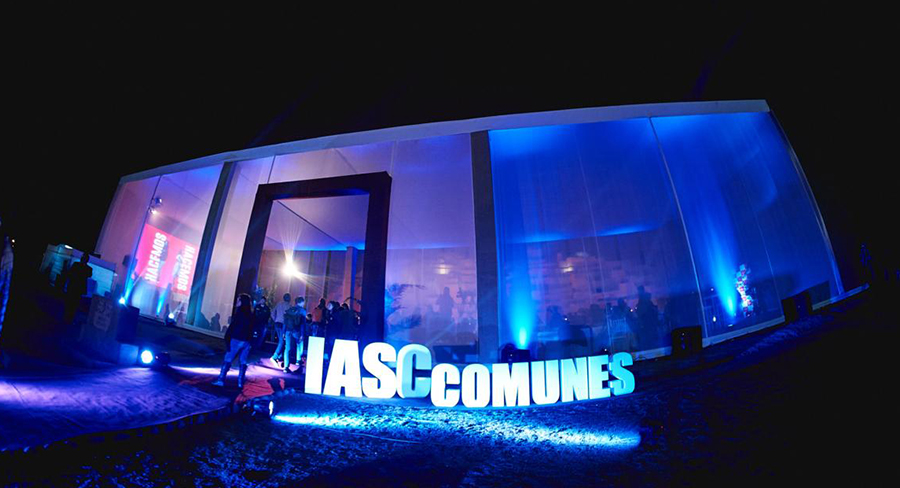SARAS Institute at the 17th Biennial Conference of the International Association for the Study of the Commons: Water governance in South America

During the first week of July 2019, the XVII Biennial Conference of the IASC (International Association for the Study of the Commons), entitled “In defence of the commons: Challenges, Innovation and Action” was held in Lima, Peru. This event took place at the Pontifical Catholic University of Peru, and SARAS was present with a panel about water governance in South America.
As part of this important Biennial Conference, for the first time held in Latin America and co-organized by two of the leading universities in the Andean region, such as the Faculty of Social Sciences of the PUCP (Peru) and the Faculty of Economics of the University de los Andes (Bogotá, Colombia), SARAS Institute led a discussion panel entitled: “Water governance in South America: transformations and implications in contexts of crisis ”.
The term common good or common resources, also known as “common property resources”, refer not only to material goods, but also systems, for example: irrigation system or computer network, complexes or geographical areas and even products or intangible assets with characteristics or sizes that for example, make it difficult to exclude users from using them or benefit from their use.
In South America, fresh water is an abundant resource, but it does not escape the global crisis that currently affects the entire world. Climate change and crises associated with scarcity, excesses, pollution, among others, highlight the importance of the role played by different actors in society to face these problems.
SARAS Institute, that is currently developing the GovernAgua Project, proposed a panel aimed at analyzing water governance in four countries in South America: Brazil, Chile, Peru and Uruguay. Micaela Trimble, PhD, (Research and Cooperation Coordinator) and Néstor Mazzeo, PhD, (Executive Director) led this panel and presented their analysis on water governance in Uruguay. In addition, Tatiana Rotondaro (University of São Paulo, Brazil), Tamara Monsalve (University of Chile) and María Teresa Oré (Pontifical Catholic University of Peru) presented their respective case studies and conclusions. Moreover, Roger Madrigal-Ballestero (CATIE) added a presentation referring to Costa Rica.
The results presented in this panel show the signs of a gradual transition in the prevailing approach to water governance, which has been moving from the traditional and technocratic approach (prediction and control paradigm) towards a decentralized, participatory and potentially adaptive one.
The experience was extremely positive. It was a first attempt to visualize, compare and extract learning from the context of water governance in the four countries addressed, raising awareness within the community in this event that brings together representatives from academy, civil society and other stakeholders involved in the problems of common goods.
International Association for the Study of the Commons conference, Lima, Peru
The IASC conference brought together researchers and practitioners from all corners of the world interested on managing the commons. Lima was the venue of the meeting, a perfect scenery to dive into one of the gastronomic capitals of Latin America, and the particularities of facing the challenges of commons dilemmas in the global south.
The conference was a perfect environment to update oneself on the latest research developments of the region. As Colombian living abroad I was very interested on what my other colleagues are doing in the country.
I was surprised by the strong Colombian contingent working on topics from collective titling in the Pacific region, experimental economics with resource users in the Caribbean, and pro-environmental preferences revealed through water use records. Colombia is a country in transition from a 5 decades period of internal conflict to ambitions of peace and sustainable development. The type of research my colleagues are doing is hopefully getting us closer to a sustainable management of the commons in a post conflict era.
It is not very often that an international conference is hold in Latin America. It presented a great opportunity for networking and get to know who is doing what in the continent. SARAS was represented by Micaela Trimble and Nestor Mazzeo who presented work on water governance and co-management arrangements. It was lovely to meet old good friends and see the scientific impact that SARAS footprint is leaving in Uruguay and the region.
The work I presented centered around two lines of research with the Beijer Institute. With the network of Beijer Young Scholars we organized a stakeholder workshop to discuss research priorities and challenges of investigating synergies and tradeoffs between inequality and the sustainable development goals. The second set of talks presented results of behavioral experiments in Colombia investigating how people behave when their resources are at risk of collapse. Both presentations were welcomed with friendly criticism and suggestions for improvements. Nothing less than the academic welcoming of an active and vibrant community of scholars and practitioners. For example, in our stakeholder workshop we were joined by an indigenous leader that remind us that SDGs are western creations that might not fit the ways of living and cosmologies from our region. Bearing that in mind, challenges remain on how to best design policies for sustainability that take into account all that diversity of world views.
The conference was a great learning experience. I hope to make it to the next one in Phoenix, Arizona. Hopefully more academic communities host their events in the global south. It brings variety and richness to our academic lives and gives us the opportunity to taste and experience different cultural corners of the world. Peruvians were very proud of their soccer team (2nd in the local cup), their piscos and ceviche.
Juan Rocha
